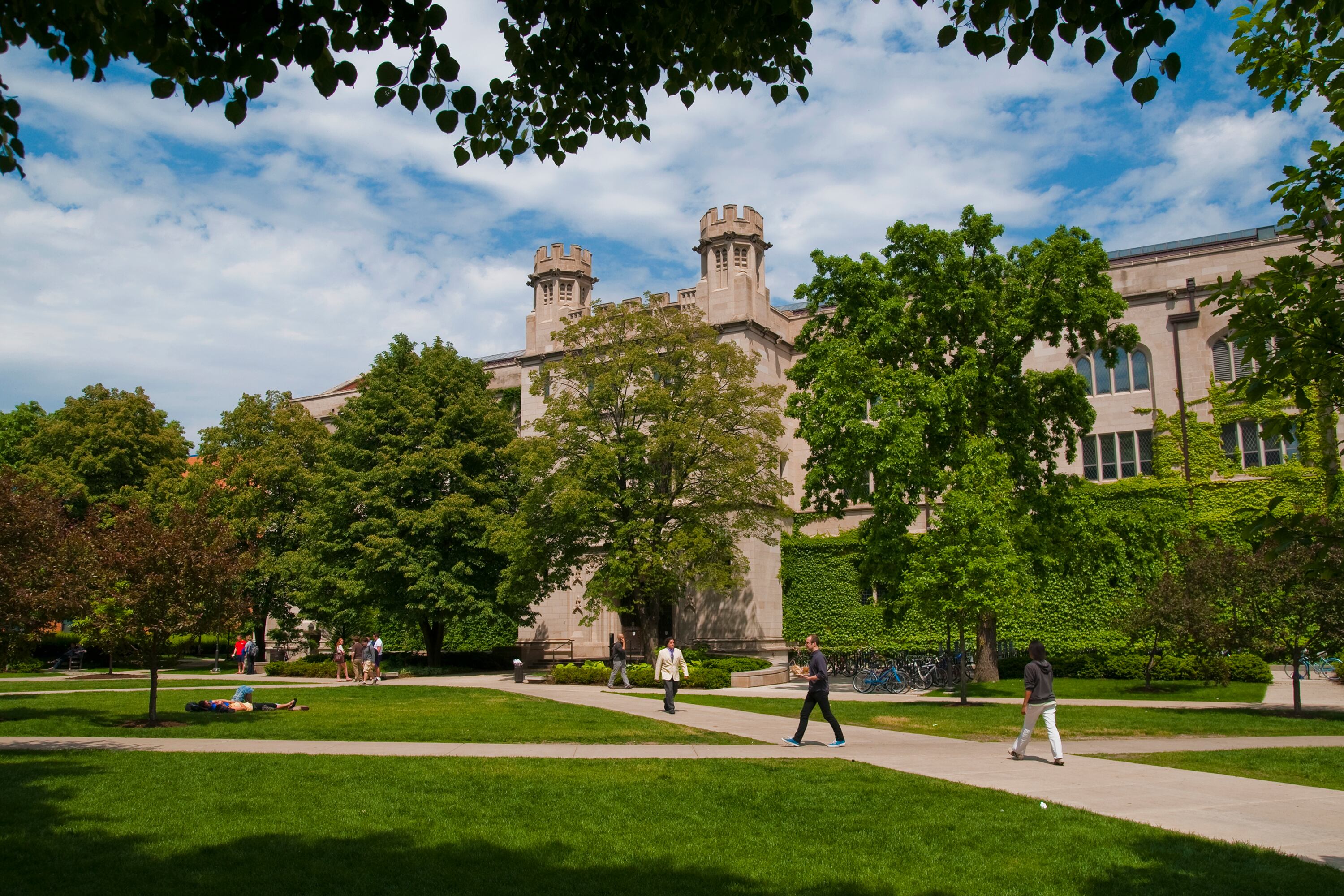Most Chicago Public Schools students take five years or longer to finish college, according to a new report from the To&Through Project at the UChicago Consortium on School Research.
The report — titled “The Four Years Fallacy” — analyzed CPS students who graduated in 2015 and enrolled in college the following year. It found 30% finished their degree in four years, but when looking at college completion rates within six years, the rate climbs to 50%.
Most students — roughly 67% — finished their degree in five years, after one or two extra semesters, while 12% took longer. About 15% finished in four years, exactly eight terms, and 4% finished early.
Jenny Nagaoka, deputy director of the UChicago Consortium and senior advisor for the To&Through Project, said college graduation rates are most commonly reported by the federal government and higher education institutions as six-year rates, but that’s not how students and families think about college when they’re applying.
“The problem is that we call them four-year colleges,” Nagaoka said. “If I’m on a two-hour flight, and if it arrives three hours later and that’s considered on time, I’m going to be pretty unhappy.”
The report did not look at the reasons why students took longer, and the authors said there are many valid reasons students take more time. However, the report points out that taking longer than four years to complete a degree can create financial burdens, including more student debt, and can delay the start of one’s career and earnings.
When looking at a student’s race and gender, disparities in college completion emerge.
Young Black men are least likely to finish their degree in either four or six years, followed by young Black women and young Latino men. Young white and Asian American women have the highest college completion rates, followed by their male counterparts, according to the report.
“We’re seeing a lot more first-generation college students, a lot more low-income students, and we’re seeing more students who are going to college are racially diverse,” Nagoaka said. “What colleges need to do to make sure that students are successful has changed considerably.”
Brian Harris, Director of College Pathways with Chicago Public Schools, said it’s important not to “negatively stigmatize taking six years to finish college.”
“Our focus is on our students’ success in general as opposed to doing it within a specific amount of time,” Harris said.
CPS has a curriculum for all sixth through 12th grade students to help them think about their future careers and how to navigate college applications and enrollment, as well as prepare them academically to be successful in college classes, Harris said.
But once they’re on a college campus, that extra guidance and help can fade away.
“So much of persistence and completion is connected to the type of support they get on the college level,” Harris said.
He pointed out that the district has had a partnership with more than a dozen local universities and colleges since 2014 aimed at collaborating on the question of how best to support CPS students.
“We talk about financial aid, we talk about admissions policies, we talk about student affairs policies,” Harris said. “We have a pretty open line of communication with higher ed institutions in hopes that we get feedback on: How can we best prepare students for success at your institution?”
“And on the flip side, here’s what we’re hearing from our students in higher ed institutions. This is what our students need in order to be successful at your institution,” he said.
Harris noted that the data in the report looks at the Class of 2015 and said district officials anticipate seeing improved four-year and six-year college completion rates in the coming years.
Becky Vevea is the bureau chief for Chalkbeat Chicago. Contact Becky at bvevea@chalkbeat.org.






